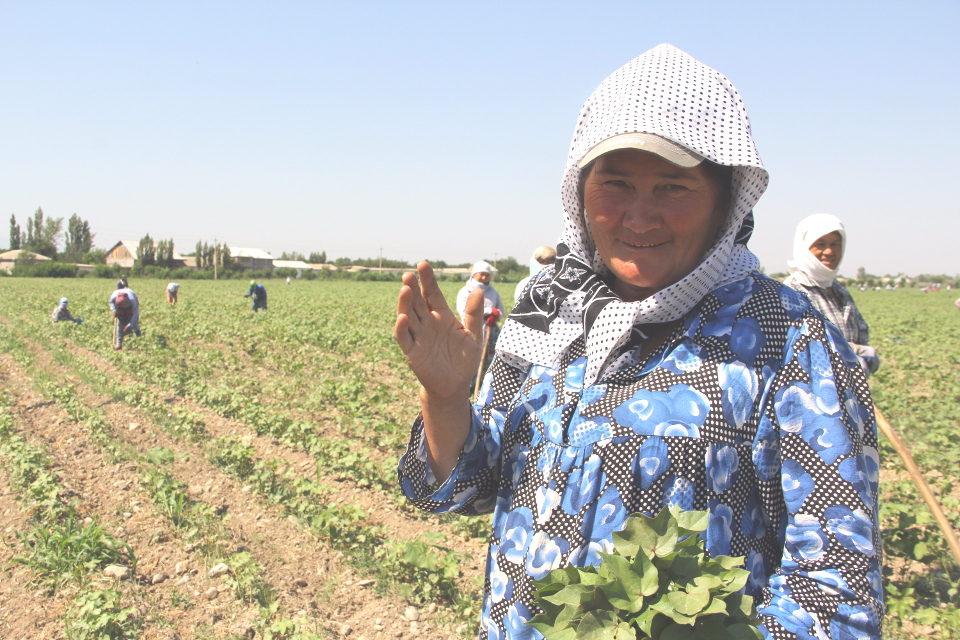Photo Essay: Rural women across Europe and Central Asia empower their communities despite challenges
Date: 14 October 2017
Unpaid care makes it difficult for rural women to take advantage of on and off-farm employment opportunities. Rural women and girls often face restricted access to productive resources, such as land, agricultural inputs, finance and credit, extension services, and technology. This limits the agricultural sector’s efficiency. Traditional and cultural norms make it more difficult for women to gain access to public services, markets and institutions, social protection and decent employment opportunities.
Across Europe and Central Asia, UN Women aims to accelerate rural women's economic empowerment. Here are a few examples of how we empower rural women in the region.
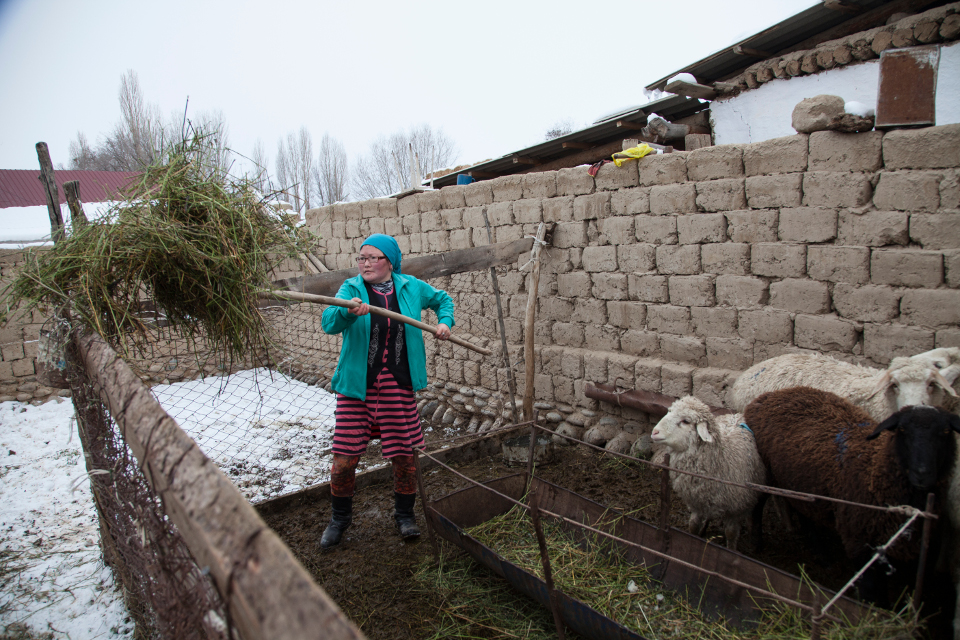
35-year-old Nazgul Taalaybekova is a mother of four children and lives in the Emgek Talaa village of the mountainous Naryn province in eastern Kyrgyzstan. Nazgul believes that she has a happy family, a loving husband and beloved children. In the family, they equally share domestic work and other responsibilities. Her husband often helps her with housekeeping, and she takes care of the livestock in his absence. Every evening, Taalaybekova and her husband list and divide up the responsibilities for the next day. In the village, there are no opportunities for paid work for Taalaybekova and her husband so they make a living by breeding sheep. With the support of the UN Joint-Programme on Rural Women’s Economic Empowerment (UNJP RWEE), which is led by UN Women in Kyrgyzstan, Taalaybekova bought a well-bred ram to increase the quantity and improve the quality of their sheep stock. They are expecting a higher income this year.
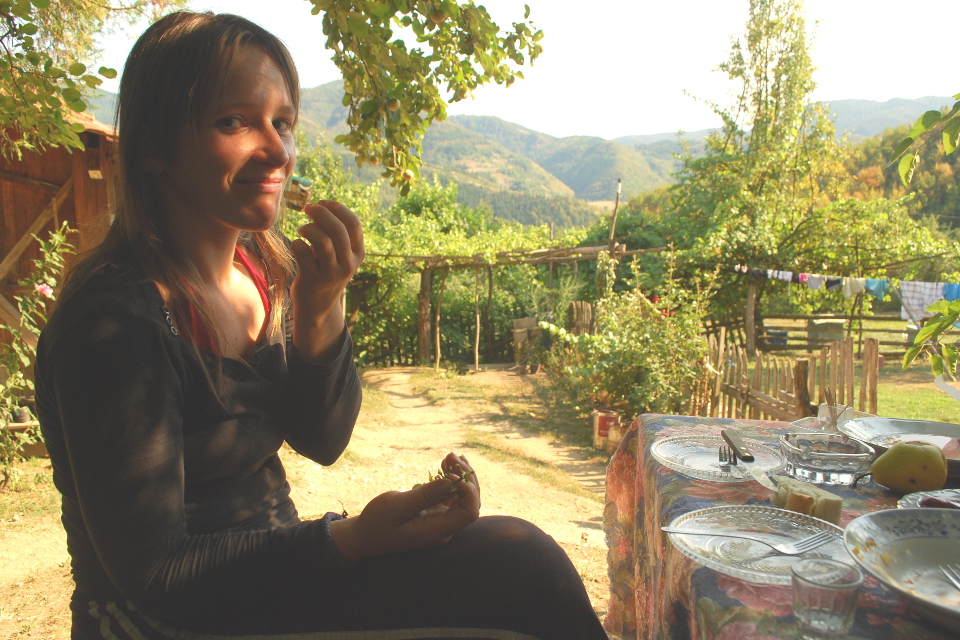
A latest study shows that rural women in Serbia have very little or no time left for their own leisure. 27-year-old Milka Filipovic, from the Mlanca village near Kraljevo in western Serbia, is no exception. She is busy all day long. First thing in the morning, she has to feed her livestock, then take care of the garden, and clean the house and prepare lunch at the same time. Her day continues with doing the laundry and ironing the clothes of the entire family before dinner time arrives. She also takes care of the elderly family members. She can only get some rest in the evening. This is when she enjoys watching Turkish soap operas. There are no places to go out for a young woman like her in her village.
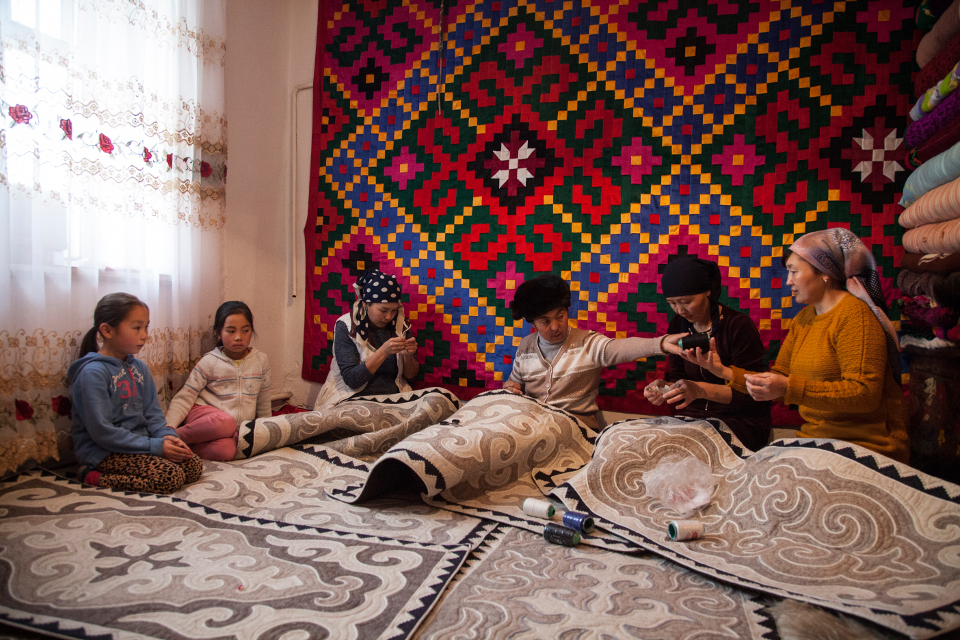
Kyrgyzstan, 2016. Photo: UN Women Europe and Central Asia/Rena Effendi
These women from the Naryn province of Kyrgyzstan are members of a self-help group mobilized with the support of the UNJP RWEE and they produce high quality felt products for sale in cities across Kyrgyzstan and abroad. People in this region make a living mostly from breeding livestock but the region is very well-known for their felt carpets made of wool. Nuria Temibek kyzy (first from the right) is the leader of the self-help group, and an activist in her village. She has recently been elected as a member of the local council. She advocates for the rights of her fellow women villagers at the local council and actively engages in supporting them with the challenges they face. She believes that when rural women actively participate in decision-making processes, their communities will thrive.
Mavjuda Karimova lives in the village Ovchi-Kalacha in B. Ghafurov district of northern Tajikistan, which borders the village of Kulundu in Ley Lek district of Kyrgyzstan. She works as a farmer and a consultant to individually and family-owned farming companies. In 2017, Karimova joined a women’s initiative, established with the support of UN Women to tackle solutions to cross-border tensions between Tajikistan and Kyrgyzstan. She received trainings on conflict analysis and mediation, together with 10 other Tajik and Kyrgyz rural women living along the border, to strengthen trust, and build confident and peaceful relations. Between October and December, they will organize a series of learning sessions where women from Tajikistan will share their knowledge and skills with women from Kyrgyzstan on how to plant and cultivate raspberries on new lands, which Kyrgyz authorities allocated to the group. The initiative aims to foster cross-border cooperation, improve the economic conditions of women’s families, and increase access of cross-border communities to healthy food products.
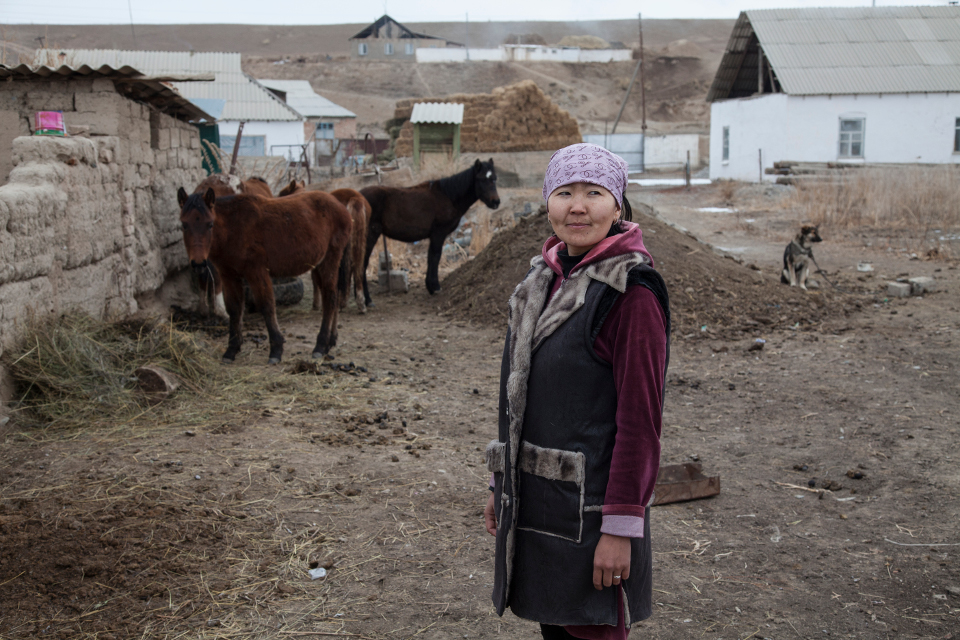
Kyrgyzstan, 2016. Photo: UN Women Europe and Central Asia/Rena Effendi
Nurzhan Toktomambetova, 33, is a mother of three and lives in the At-Bashin district of the mountainous Naryn province. She dreams of having a house with all the necessary and convenient facilities like the ones in cities. She recently brought tap water into her house and now it's time to buy a washing machine, a boiler for hot water and build a shower. Despite her degree in Economics, there is no job for her in her village. She was very happy when the UNJP RWEE started training the women in her village to develop their economic skills and boost their income opportunities. As a result, a group of five women, including Toktomambetova, started a sewing workshop and making profit. Toktomambetova says now she is closer to her dream of building a cozy and convenient home for her family.
